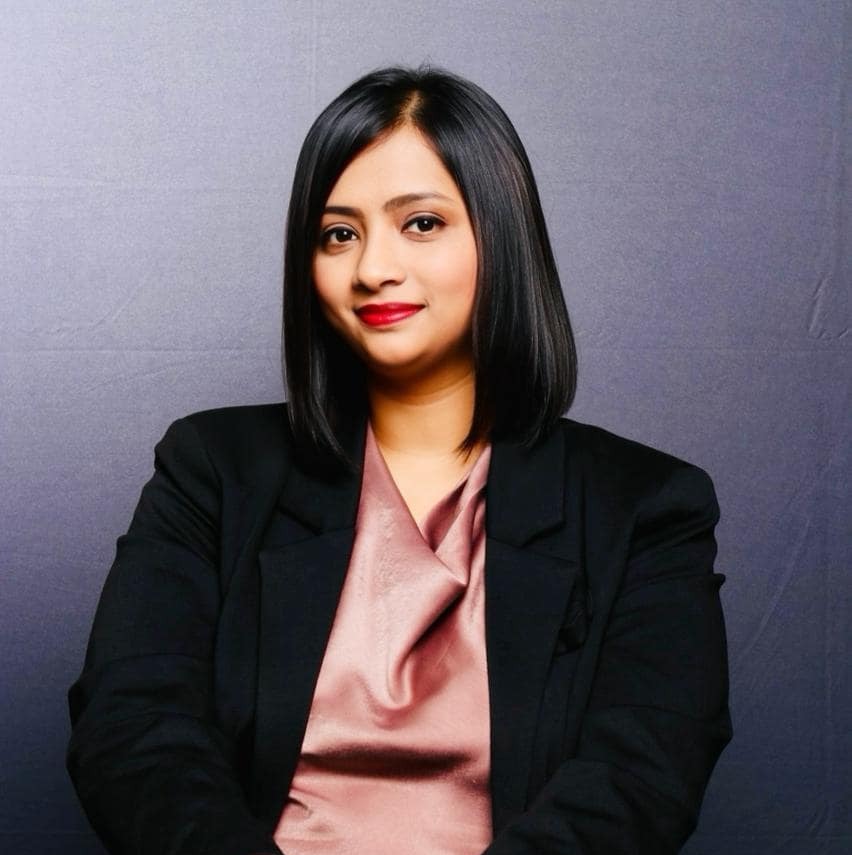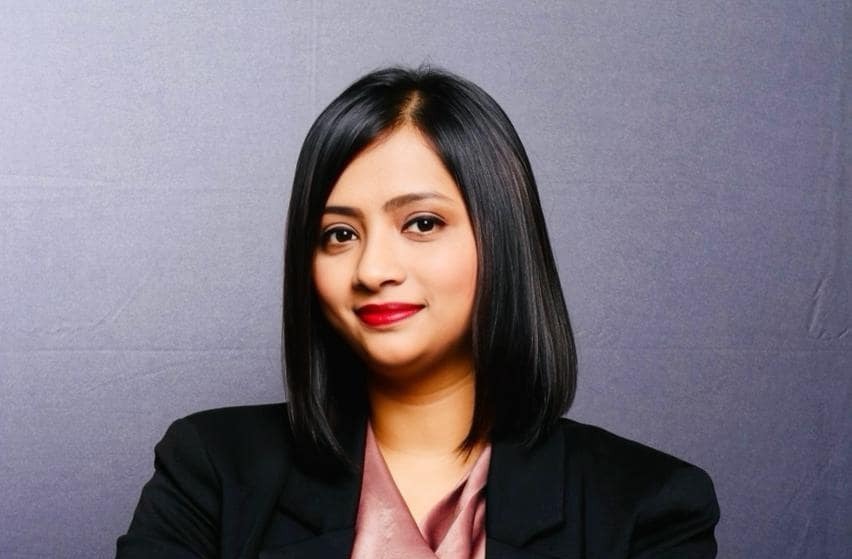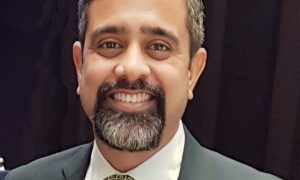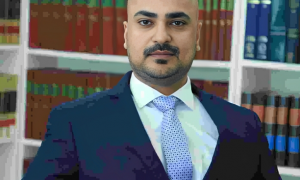This interview has been published by Anshi Mudgal and The SuperLawyer Team

Given your career spanning over a decade, did you initially view law as a predetermined path for you, or were there specific factors that influenced your decision to pursue it?
Growing up on the campus of Pune University, I was surrounded by an unspoken expectation to pursue a conventional career in science. I followed the script, diving into science during my 12th grade, with engineering or medicine as my presumed destinations. But somewhere along the way, I realized the script wasn’t written for me (largely thanks to a rocky relationship with Mathematics).
The turning point came when my mother, who has dedicated her life to social and environmental causes through her NGO, National Women’s Organization, suggested I meet the iconic environmental advocate Shri. M.C. Mehta. His passion for using law as a tool for change sparked an idea that law could be a path to make a meaningful impact, an idea that had not even crossed my mind before. Encouraged by my mother, I applied to ILS Law College in Pune, more as an experiment than a commitment.
What unfolded was far beyond what I had anticipated. Law, as I discovered, wasn’t just a career, it was a way of thinking, a discipline that pushed me to question, analyze, and create solutions. While I initially leaned toward environmental law, an introduction to Intellectual Property Rights during my 3rd year in college shifted my focus entirely. I found myself captivated by the intricacies of IP law, and as media and entertainment law emerged as a distinct field, it felt like an organic extension of my interests.
In retrospect, my journey into law wasn’t about finding a career, it was about discovering a passion I didn’t know I had. What began as a casual detour became the foundation of a profession that allows me to blend creativity with structure and create impact in ways I hadn’t imagined. It’s proof that sometimes, the paths we don’t plan for lead to the most fulfilling destinations.
You began your career at an established Media & Entertainment law firm in India. Could you share how your initial experiences shaped your understanding of the intricacies of this specialized field of law, and how did your role evolve your understanding and experience?
Law school gave me a solid foundation in the theoretical aspects of Intellectual Property Rights, but it was not until I stepped into the real world that I began to truly understand the nuanced and dynamic nature of Media & Entertainment law. My early years were nothing short of transformative. I had the opportunity to be involved in pathbreaking litigations, which tested my ability to apply theory to complex, real-world scenarios.
One of the defining experiences was being part of policy-level discussions surrounding the landmark Copyright Amendment Bill introduced in 2010, coincidentally the year I graduated. These discussions offered a rare glimpse into how laws are shaped, debated, and implemented, a perspective few young lawyers get to witness so early in their careers.
I also worked on a variety of transactions, from structuring film projects, complex agreements, to drafting opinions, conducting due diligence, and crafting advisory notes. Each assignment added a new layer of understanding and taught me to navigate the intersection of creativity, business, and compliance that defines this field.
I remain grateful for the early exposure I received to the many facets of Media & Entertainment law, which set the foundation for my practice today.
You played a pivotal role in the landmark statutory licensing case on radio royalties. Could you share your experience of being part of such a significant decision, and your thoughts on the abolishment of the IPAB and its implications for the resolution of IP matters in commercial courts?
Representing Tips Industries Limited and international organizations like SESAC (USA) and SUISA (Switzerland) during the radio statutory licensing matter before the IPAB was an incredible professional milestone. The case, conducted entirely via video conferencing amidst the pandemic, spanned over a month-long virtual hearing and culminated on December 31, 2020. This high-stakes, time-bound hearing saw 10 radio broadcasters seeking statutory licenses to fix royalties for sound recordings broadcast through radio.
The IPAB’s decision was groundbreaking, overhauling the prevailing royalty model and establishing new precedents that reshaped the calculation of radio royalties across India. It was an unparalleled learning experience to witness and contribute to such a transformative legal development.
However, the abolishment of the IPAB has disrupted the framework of statutory licensing and several other matters, which was designed to be a time-bound process. With IP matters now before overburdened commercial courts, delays have become the norm, undermining the efficiency and predictability that statutory licensing aimed to ensure.
In the “Trial by Fire” case, you successfully defended Endemol India in a lawsuit involving defamation and privacy claims. Could you describe the key legal arguments you made to prevent the release of the web series from being delayed or obstructed?
In the “Trial by Fire” case, where our firm successfully defended Endemol India against defamation and privacy claims brought by Sushil Ansal, the primary legal arguments revolved around balancing the plaintiff’s rights with the defendant’s right to free speech and expression enshrined under Article 19(1)(a) of the Indian Constitution. The court was persuaded by the following key arguments:
Public Domain Information: The web series was inspired by a book published in 2016, which was based on public records and widely circulated events related to the Uphaar tragedy. The plaintiff had not sought any injunctive relief against the book for several years, demonstrating acquiescence and diminishing the basis for an urgent injunction against the series.
Freedom of Expression and Public Interest: The series reflected the experiences and perceptions of the victims’ families, who have the right to narrate their anguish and systemic failures. The court recognized that preventing its release would stifle public debate and discussion about a tragedy that had been in the public domain for over 25 years.
High Threshold for Pre-Publication Injunctions: The court reiterated the principle that pre-publication injunctions are granted only in exceptional circumstances. The plaintiff failed to demonstrate that the series was manifestly defamatory or malicious. The disclaimer in the series, clarifying it as a fictionalized account inspired by true events, further bolstered the defense.
Delay and Lack of Good Faith: The plaintiff approached the court at the last minute, despite the series’ production being publicized years earlier. This lack of prompt action undermined the claim for equitable relief.
These arguments collectively established that the plaintiff’s apprehensions of reputational harm did not outweigh the broader public interest in ensuring free expression and access to information on matters of significant public concern.
Content regulation for OTT platforms is a rapidly evolving area of law. What are some of the most pressing legal challenges that OTT platforms face today, and how do you guide your clients through these regulatory issues?
Content regulation for OTT platforms is a rapidly evolving area of law, where platforms face a delicate balancing act between creative freedom and regulatory compliance. The IT Rules, 2021, play a significant role in shaping this landscape, emphasizing a three-tier grievance redressal mechanism and requiring platforms to adopt self-regulatory measures for content classification and viewer discretion. The importance of self-regulation cannot be overstated, as it empowers platforms to address potential concerns while avoiding excessive external interference. However, challenges such as defamation, obscenity claims, claims in relation to hurting religious sentiments or claims due to other socio-political sensitivities and the need to navigate jurisdictional complexities across borders add layers of complexity. In guiding clients, we prioritize setting up robust compliance mechanisms, pro-active script vetting during development stage/ content vetting during production and aligning with industry standards to mitigate risks. Staying abreast of evolving legal precedents and regulatory trends is critical, as courts and policymakers continue to shape this dynamic field. Our focus remains on helping clients adapt to these changes while safeguarding their creative integrity and commercial objectives.
Your work as a trustee for the National Women’s Organization and your involvement in the Save Ganga Movement showcase your commitment to social causes. How do you balance these responsibilities with your demanding legal career?
Balancing a demanding legal career with social responsibilities is undoubtedly challenging, but I believe it’s a matter of purpose and priorities. My work as a trustee for the National Women’s Organization and my involvement in the Save Ganga Movement stem from a deep conviction that we all have a duty to give back to society. While my legal career demands significant time and focus, these causes remind me of the broader impact we can have beyond our professional lives. I approach this balance by integrating my passion for social change into my daily life, leveraging my legal expertise to contribute meaningfully to these initiatives. It’s not about managing time as much as aligning values, when you believe in the importance of giving back, you find the energy and commitment to make it happen. Ultimately, the fulfillment I derive from these efforts enriches my professional work, creating a symbiotic relationship between the two.
You founded IPRMENTLAW, which aims at spreading legal awareness relating to the changing dynamics in the IPR and Media and Entertainment field. What inspired you to create this knowledge-sharing platform, and what impact has it had on the legal community?
Knowledge sharing is a value I hold very close to my heart, and it was the driving force behind the creation of IPRMENTLAW. When I started practicing in the intellectual property and media and entertainment fields, I noticed a significant gap- there wasn’t a dedicated, open-access forum for updates, insights, and discussions specific to these areas. I wanted to bridge that gap and create a platform where legal knowledge could be shared freely and accessibly, not just within the legal fraternity but also with creators, businesses, and students who engage with these fields.
IPRMENTLAW was conceived as a blog to foster dialogue and keep critical issues alive through debate and discussion, similar to the impact platforms like Spicy IP have had. Over the years, I’ve been fortunate to have a group of young lawyers join me in contributing to the platform, bringing fresh perspectives and enthusiasm to the initiative. Together, we’ve built a resource that has become a go-to space for updates, opinions, and legal developments in IP and media law.
The impact has been humbling. It has sparked meaningful discussions within the legal community, encouraged critical thinking, and provided practical insights for practitioners and stakeholders and most importantly inculcated a habit of staying updated and informed about the latest legal happenings in the realm of IP, media and entertainment laws. By making it a non-profit open-access platform, we’ve ensured that knowledge isn’t confined to a select few but is available to anyone seeking to learn and engage. For me, this initiative is more than a professional endeavor, it’s a small step towards democratizing legal knowledge and fostering a culture of informed dialogue.
With your extensive background and experience, what advice would you offer to budding lawyers who wish to have a successful career in IPR and Media and Entertainment Industry?
My advice to budding lawyers aiming for a successful career in IPR and the Media and Entertainment industry boils down to one key principle: there is no substitute for hard work. In a field as dynamic as law, particularly in niche areas like IPR and media, the hustle and hunger to learn must never stop. While every generation benefits from advancements in technology that make knowledge more accessible and work more efficient, success in the legal profession still requires steadfast commitment and effort.
A common observation about Gen Z is their inclination towards balancing priorities, which is undoubtedly important. However, it is crucial to remember that prioritizing knowledge and consistently honing your craft is non-negotiable in this field. Opportunities in law are not handed out, they are earned through diligence, resilience, and an insatiable curiosity to learn. The legal profession demands 100% dedication, irrespective of how sophisticated technology becomes to aid you.
For budding lawyers, I would emphasize focusing on gaining knowledge and building expertise. Read voraciously, stay updated on developments in your area of law, and don’t shy away from putting in long hours when needed. The money, recognition, and work-life balance you aspire for will follow once you’ve laid a strong foundation through your hard work. This profession rewards those who are relentless in their pursuit of excellence, and if you bring that mindset, success will inevitably come your way.
Managing a demanding legal career can be challenging. How do you balance your professional responsibilities with personal life, and what strategies do you employ to maintain that balance?
When you truly love what you do, work never feels like a burden. I consider myself to be blessed to engage in work that I’m incredibly excited about making every day of my life even if it’s difficult, quite worthwhile. But in the same manner, I do think it is important to make sure you set aside time for yourself in your personal life. Balance isn’t about giving equal time to everything; it’s about prioritizing what matters most in each moment. I try to set boundaries where possible and carve out moments for myself, whether it’s through travel, or just downtime to recharge. It’s also important to acknowledge that there will be times when work takes precedence, and that’s okay, as long as one tries to balance the focus and does not forget the aspects of their life that are personal.
Get in touch with Anushree Rauta –


























